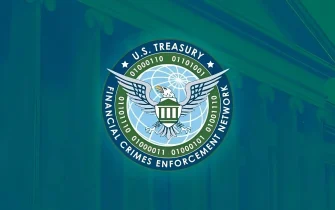How the Court’s Decision to Block BOI Reporting and Corporate Transparency Act Enforcement Impacts Businesses Nationwide
Editor’s Note
This post is part of the ‘The GPCPAs Guides,’ an initiative dedicated to empowering international businesses with the knowledge and strategies needed to navigate the complexities of the U.S. tax system and financial strategies. Explore our growing library of guides for expert insights and actionable advice tailored to your success.
By The Guillen Pujol CPAs Newsroom
In December 2024, the enforcement of the Corporate Transparency Act (CTA), a pivotal anti-money-laundering law mandating corporate entities to disclose their beneficial owners to the U.S. Treasury Department, faced significant judicial challenges. A federal judge in Texas issued a nationwide injunction, effectively blocking Corporate Transparency Act enforcement and halting BOI reporting, in what has been widely referred to as a ‘court-blocks-boi-reporting’ decision. This ruling, aligning with a similar decision in Alabama earlier in the year, has introduced uncertainty into the future of corporate ownership transparency in the United States.
Court blocks BOI Reporting: Judicial Rulings and Their Implications
On December 3, 2024, U.S. District Judge Amos Mazzant in Sherman, Texas, granted a preliminary injunction against the enforcement of the CTA. The judge concluded that the law exceeded federal authority, infringing upon states’ rights as protected by the Tenth Amendment. He characterized the CTA as an “unprecedented” federal overreach into areas traditionally governed by state law, particularly concerning the formation and regulation of corporate entities.
This ruling arrived just weeks before the January 1, 2025, compliance deadline, creating a complex legal landscape for businesses nationwide. The Department of Justice (DOJ) promptly filed a notice of appeal on December 5, 2024, signaling the commencement of a protracted legal battle that could potentially escalate to the Supreme Court, The Wall Street Journal reported.
Court blocks BOI Reporting: Reactions from the Business Community
The injunction has elicited a spectrum of reactions from the business community. The National Federation of Independent Business (NFIB), a plaintiff in the Texas case, lauded the decision as a reprieve for small businesses that would have faced substantial compliance burdens under the CTA. Caleb Kruckenberg, litigation director at the Center for Individual Rights, representing the plaintiffs, stated that the injunction provides small businesses “a reprieve while the courts, and likely the Supreme Court, can consider the constitutional issues further.”
Conversely, organizations such as the American Institute of CPAs (AICPA) have expressed concern over the ensuing confusion. In a statement, the AICPA urged businesses to continue preparing for BOI reporting, advising that “best practices dictate that at a minimum those assisting clients with BOI report filings gather the required information from the clients and are prepared to file the BOI report if the injunction is lifted.”
Government’s Position and Next Steps
The Treasury Department, through its Financial Crimes Enforcement Network (FinCEN), is currently reviewing the implications of the court’s order. A spokesperson noted that other courts have denied similar requests, indicating a fragmented judicial perspective on the CTA’s constitutionality. The DOJ’s appeal underscores the administration’s commitment to implementing the CTA as a tool to combat money laundering and enhance financial transparency.
Looking Ahead
As the legal proceedings unfold, businesses are advised to stay informed and maintain preparedness for potential compliance requirements. The current injunction temporarily halts enforcement, but the ultimate fate of the CTA will depend on the outcomes of ongoing and future court deliberations. Entities should monitor official communications from FinCEN and seek professional advice to navigate this evolving regulatory environment.
Final Thoughts
The nationwide injunction on BOI reporting under the Corporate Transparency Act has created uncertainty for businesses and raised questions about the future of corporate ownership transparency. As the legal landscape continues to evolve, court decisions may change unexpectedly. Staying informed and prepared is crucial. For the latest developments and expert guidance, reach out to the GPCPAs team and visit our website regularly for up-to-date news and resources.
To understand FinCEN you can revisit our FinCEN guides.
The GPCPAs Advantage
At Guillen Pujol CPAs, we help businesses navigate FinCEN’s complex regulations
Our expertise includes:
- Filing Critical Reports: Assistance with FBAR, Form 8938, and SARs.
- Custom Compliance Programs: Tailored strategies for businesses in high-risk industries.
- Real-Time Risk Management: Identifying and mitigating potential compliance risks before they escalate.
Want to ensure FinCEN compliance for your business? Schedule a consultation with Guillen Pujol CPAs today. Our experts are ready to guide you every step of the way. Feel free to contacts us by clicking the email icon below.
- 2026 Tax Calendar: Your Guide to IRS Deadlines All Year
- How Realtors Can Reduce Their Taxable Income Through Smart Entity Selection and Advanced Tax Planning
- After the Shutdown: How IRS Cuts Continue Affecting Taxpayers
- IRS Tax Brackets for 2026: What Business Owners Need to Know
- Florida’s Hunting, Fishing & Camping Sales Tax Holiday 2025: A Guide for Shoppers & Businesses











